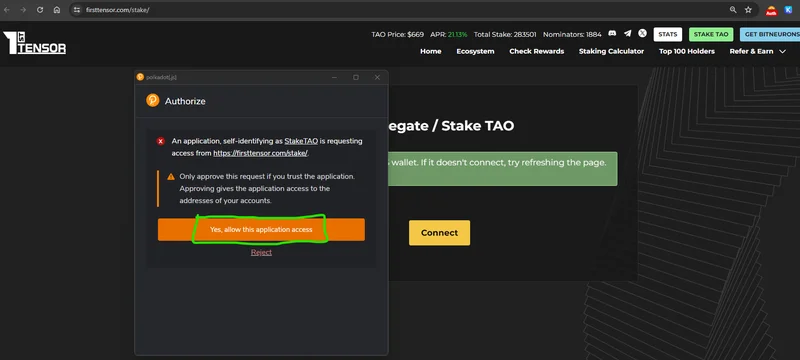Of course. Here is the feature article, written from the persona of Nate Ryder.
*
Is Bittensor's AI Dream Just a High-Tech Fever Dream?
Let me get this straight. We're supposed to believe a token that whipsaws between $282 and $478 in the span of a few days is on some stable, preordained path to six figures? Every time I log on, I’m bombarded with price predictions for Bittensor (TAO) that sound less like financial analysis and more like a sci-fi author got drunk and started throwing darts at a board full of impossibly large numbers. $2,000 by 2030? Sure. $60,000 by 2040? Why not. One "analysis"—I'm looking at you, Bittensor Price Prediction 2025, 2026, 2030-2040—even had the guts to put a $213,341 price target on it for 2050.
Give me a break.
At that point, you’re not predicting a market, you’re writing a fantasy novel. I’ve seen more realistic plot lines in video games. The sheer volatility of the tao bittensor price should be a massive red flag, a screaming siren that this is pure, uncut speculation. But in the crypto world, that kind of chaos is apparently a feature, not a bug. It’s proof of "price discovery" and "strong buyer support." Right. It’s a casino, and the house is loving every minute of it.
The Gospel According to the Gurus
The hype isn’t just coming from random prediction sites. It’s a full-blown religion now, with a choir of true believers preaching the gospel of TAO on X and Reddit. You've got guys like "Rand" screaming that "You're not bullish enough on TAO." That’s not analysis; that's a cult recruitment slogan. It’s designed to trigger your FOMO, to make you feel like the idiot who’s missing out while everyone else is getting rich. Translation: "Stop thinking and join the herd before the gate closes."
Then you have the institutional money sniffing around, which is always the point where things get really weird. Grayscale files for a Bittensor Trust. Barry Silbert—a man who basically embodies the crypto-to-Wall-Street pipeline—is backing projects built on it. Are these guys true believers in decentralized AI? Or do they just see a ticker with a red-hot narrative they can package and sell to their clients? Does Silbert actually understand how Yuma Bittensor consensus works, or does he just see a rocket ship he can slap his logo on?
Okay, maybe that's unfair. No, it's not. This is crypto. Fairness left the building in 2017 when people started taking out second mortgages to buy cartoon cats. The game has always been about narratives, and right now, "AI plus blockchain" is the most potent narrative on the planet. The fact that the first bittensor halving is on the horizon just adds fuel to the fire, a convenient copy-paste of the Bitcoin scarcity playbook. It's a perfect storm of buzzwords, and the big money knows exactly how to sail in those conditions.

Under the Hood of the Hype Machine
So, what is Bittensor? Peel back the layers of hype, and you find a genuinely complex and ambitious idea. A decentralized marketplace for artificial intelligence, where people are rewarded in TAO token for contributing AI models and computing power. It’s built on a network of specialized bittensor subnets designed for different tasks. It sounds good. It sounds like the future, even.
But it’s also insanely complicated. They throw around terms like "Subtensor," "Yuma Consensus," and "Intelligence Consensus" like we’re all supposed to just nod along. I can just picture the conference room now—a blur of ergonomic chairs and the faint smell of stale coffee, whiteboards covered in diagrams that only three people in the world truly understand, while the marketing team figures out how to boil it all down to a catchy tagline for the masses. The project's own literature admits its complexity is a challenge for beginners. You think?
And what about the actual business? I read one report claiming the top subnets are generating "$20 million in annual recurring revenue." That’s a hell of a claim. It’s also a claim a journalist couldn't independently verify. So what is it? Real revenue, or just numbers in a blog post designed to keep the hype train rolling? Until I see audited financials—which I know is a laughable thing to ask for in this space—it’s just marketing. It's like every tech company now. They can't just sell a product; they have to be "building the future" or "democratizing intelligence." This ain't your grandma's savings account, that's for damn sure.
The whole thing feels... abstract. A grand vision that might one day change the world, but today, its primary function seems to be fueling a speculative asset. And the crypto community is eating it up, because a good story is always more compelling than a balance sheet. Especially when that story promises to make you a millionaire.
So, Are You Buying or What?
Look, I’m a cynic, not an idiot. I see the charts. The technicals, offcourse, look strong. "Strong Buy," the indicators scream. The moving averages are all pointing to the heavens. When the herd is stampeding, you either get out of the way or you get trampled. And right now, the herd is buying TAO crypto. The bounce from the lows was violent and fast, a clear sign that there are people with very deep pockets who don't want to see this thing fail. It's the kind of move that prompts articles asking, Here’s Why the Bittensor (TAO) Price Recovered From the Crash And Hit $450.
But does that make it a good investment? Or does it just make it a popular bet? There’s a difference.
Then again, I was skeptical about Bitcoin when it was a rounding error compared to the current BTC price. I thought Ethereum was just a convoluted science project. Maybe I'm just the old man yelling at a digital cloud, completely missing the next paradigm shift. It wouldn't be the first time. The idea of breaking Big Tech's monopoly on AI is powerful. It’s a story worth rooting for.
The question is whether Bittensor is the project that actually does it, or if it's just the one with the best marketing and the most volatile token right now. I don't have the answer. And if you’re being honest with yourself, neither do you.
It's a Lottery Ticket with a Great Story
I'm not saying the bittensor coin is a scam. It might be the most important technological innovation since the internet itself. Or it could be a wildly overvalued, incredibly complex solution that's still desperately searching for a real-world problem to solve. The raw truth is, nobody knows. The "experts" are just guessing louder than the rest of us. Buying TAO today isn't an investment in proven technology; it's a high-stakes bet on a narrative. And right now, that narrative is white-hot. Just don't get burned when the fever finally breaks.

